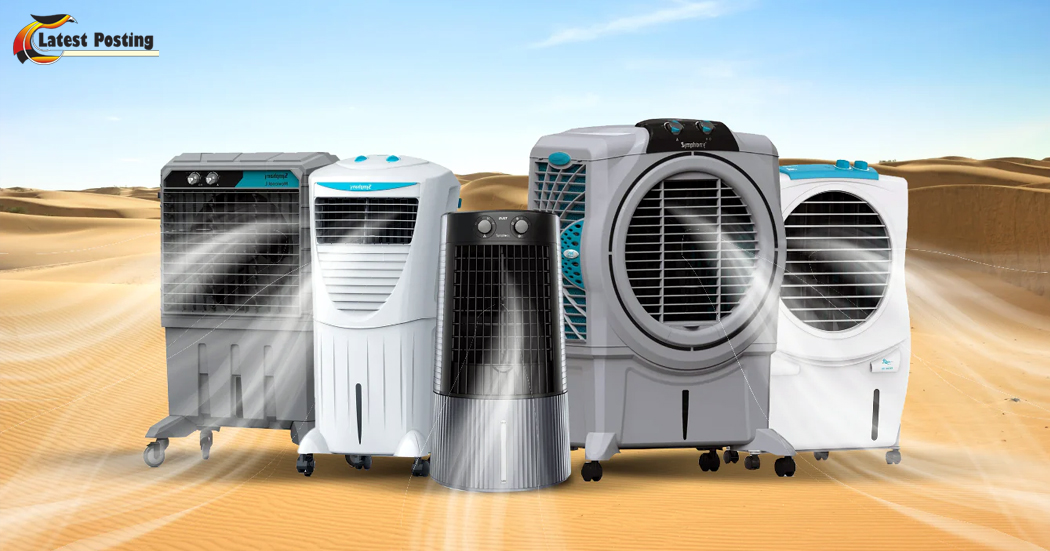As the scorching heat of summer bears down upon us, the quest for cool comfort becomes paramount. Air conditioners have long been the go-to solution, but they come with their drawbacks, from high energy consumption to environmental concerns. In recent times, air coolers have emerged as a viable alternative, offering an efficient and eco-friendly way to beat the heat. This article delves deep into the world of Air Cooler, exploring their mechanisms, advantages, and impact on sustainability.
Understanding Air Coolers
Air coolers, also known as evaporative coolers or swamp coolers, operate on a simple yet effective principle: evaporation. Unlike air conditioners that use refrigerants to cool air, air coolers use water to create a cooling effect. The basic components of an air cooler include a water reservoir, a pump to circulate water, a fan to draw in warm air, and cooling pads or media that absorb water and facilitate evaporation.
When warm air is drawn into the cooler and passed through the moistened cooling pads, the water evaporates, absorbing heat from the air in the process. This cooled air is then blown out into the room, providing a refreshing breeze. The process is natural, requiring less energy compared to traditional air conditioning systems.
Energy Efficiency
One of the primary advantages of air coolers is their energy efficiency. Unlike air conditioners that consume significant amounts of electricity, especially in large spaces, air coolers operate on a fraction of that energy. The main energy consumption in air coolers comes from the fan and water pump, both of which are relatively low-power components.

Moreover, air coolers do not rely on chemical refrigerants. Like CFCs or HCFCs, which are known to contribute to ozone depletion and global warming. This makes air coolers a more environmentally friendly choice, aligning with sustainable living practices and reducing carbon footprints.
Benefits of Air Coolers
- Cost-Effective Cooling: The operational cost of air coolers is substantially lower than that of air conditioners. This makes them a cost-effective solution for both residential and commercial spaces, especially in areas with dry climates where air coolers perform most efficiently.
- Improved Air Quality: Air coolers utilize natural processes to cool and humidify the air, which can help alleviate dryness and improve indoor air quality. They also work well in ventilating indoor spaces by constantly circulating fresh air.
- Eco-Friendly Design: By avoiding the use of harmful refrigerants and consuming less energy, air coolers contribute positively to environmental sustainability. They are an eco-conscious choice for cooling needs, aligning with green building standards and initiatives.
- Easy Installation and Maintenance: Air coolers are generally easier to install than air conditioning systems, requiring minimal modifications to existing structures. They also have simpler maintenance requirements, with periodic cleaning of cooling pads and water reservoirs being the primary tasks.
- Versatility and Portability: Many air coolers are designed to be portable, allowing users to move them between rooms or outdoor spaces as needed. This versatility makes them suitable for various environments, from homes and offices to workshops and events.
Drawbacks and Considerations
While air coolers offer numerous benefits, they may not be suitable for every situation. Some factors to consider include:
- Effectiveness in Humid Climates: Air coolers rely on evaporation, which is less effective in humid environments where the air is already saturated with moisture. In such climates, air conditioners or alternative cooling methods may be more appropriate.
- Cooling Range: Air coolers are most effective in smaller to medium-sized spaces. For larger areas or buildings, multiple units or additional cooling solutions may be necessary to achieve desired comfort levels.
- Water Consumption: Air coolers require a constant supply of water for optimal operation. While they are generally efficient in water usage compared to other cooling systems, users should be mindful of water consumption and availability, especially in regions prone to water scarcity.
- Maintenance Requirements: Regular cleaning and maintenance of cooling pads, water reservoirs, and filters are essential to ensure efficient and hygienic operation of air coolers. Neglecting maintenance can lead to reduced performance and potential issues with air quality.
Innovations and Future Trends
The field of air cooling technology continues to evolve, with ongoing efforts to enhance efficiency, performance, and user experience. Some notable innovations and future trends in air coolers include:
- Smart Cooling Systems: Integration of smart technology allows users to control and monitor air coolers remotely via smartphone apps or voice commands. These systems can optimize settings based on user preferences, environmental conditions, and energy efficiency.
- Hybrid Cooling Solutions: Hybrid systems that combine the benefits of air coolers with other cooling technologies, such as heat pumps or solar power, are being explored to achieve greater efficiency and sustainability.
- Advanced Cooling Media: Research and development focus on improving the design and materials of cooling pads or media to enhance cooling efficiency, durability, and resistance to mineral buildup.
- Energy-Efficient Designs: Continued emphasis on energy-efficient components. Such as low-power fans, variable-speed motors, and water-saving features, aims to reduce overall energy consumption and operating costs.
Conclusion
Air coolers offer a compelling alternative to traditional air conditioning systems, providing efficient, cost-effective, and environmentally friendly cooling solutions. With advancements in technology and ongoing efforts to improve performance and sustainability, air coolers. Are poised to play a significant role in addressing cooling needs while minimizing environmental impact. Whether for residential, commercial, or industrial use, air coolers present a cool comfort option. That aligns with the principles of energy conservation and responsible consumption.




